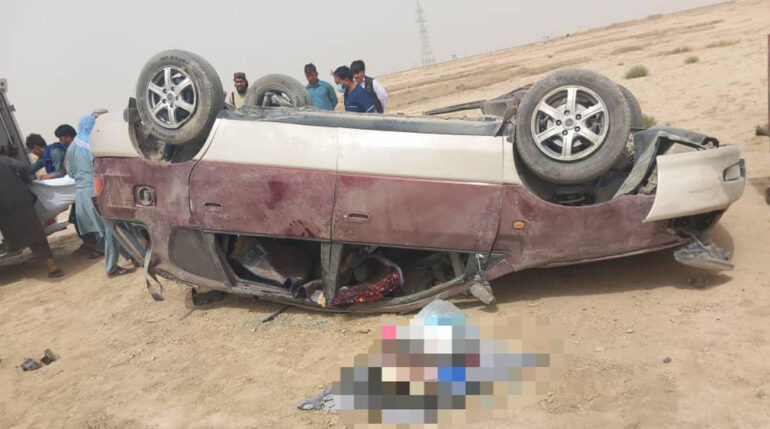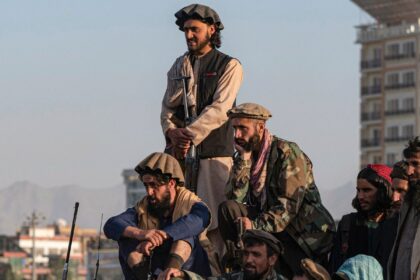RASC News Agency: A devastating traffic accident in Balkh province has left at least three people dead and four others injured, reigniting alarm over Afghanistan’s collapsing road safety system. The tragedy, which unfolded late on Sunday, September 2, on the Hairatan–Mazar-e-Sharif highway, is the latest reminder of how unchecked negligence and state failure continue to claim lives on Afghanistan’s roads. According to eyewitnesses, the crash occurred when a “Picnic” type vehicle, driven at excessive speed and without caution, veered off the highway and overturned. Taliban officials in Balkh confirmed that the victims were taken to Abu Ali Sina Balkhi Hospital, where doctors reported that one of the injured remains in critical condition.
The Balkh incident came just 24 hours after two other crashes in Ghazni province killed two more people and injured at least 12 others. Unofficial figures gathered from hospitals and civil society activists suggest that, in recent weeks alone, more than 136 people have died and another 45 have been injured in traffic accidents across Afghanistan. These numbers already shocking by any standard highlight a national emergency that continues to grow under Taliban neglect. Citizens and transport experts cite multiple causes: crumbling and substandard roads, dangerously outdated vehicles, absence of traffic signage or safety infrastructure, and reckless driving practices that go largely unchecked. Many also stress that the mounting psychological pressures and economic desperation faced by drivers have turned Afghanistan’s highways into lethal corridors. In a country where vehicles are often overloaded far beyond capacity and safety rules are ignored with impunity, tragedy has become routine.
In many areas, highways remain devoid of basic road safety measures. Cargo trucks and overcrowded passenger vans dominate the roads, operating without regulation or oversight. The Taliban, despite their loud claims of governance, have shown no intention or ability to institute a national traffic management system. Enforcement of laws is erratic at best, and accountability for deadly crashes is virtually nonexistent. The recent accident in Balkh is therefore not an isolated misfortune, but part of a broader national pattern of neglect. Under Taliban rule, traffic safety has been reduced to an afterthought, just as healthcare, education, and infrastructure have been systematically eroded. Afghanistan’s roads, once meant to connect communities, have now become open graves, silently consuming the lives of men, women, and children with each passing week.
For the families of victims, these accidents inflict grief that extends far beyond the moment of the crash. Every death leaves behind households plunged into poverty, children deprived of breadwinners, and communities mourning in silence. In a country already suffocating under poverty, repression, and unemployment, the steady stream of traffic fatalities adds yet another layer to Afghanistan’s growing humanitarian disaster. Ultimately, the mounting toll of road accidents is not simply a reflection of reckless driving it is an indictment of Taliban governance. By ignoring road safety, abandoning infrastructure, and failing to enforce even the most basic regulations, the Taliban have condemned ordinary Afghanistani citizens to needless suffering and death. The Balkh tragedy stands as yet another reminder that in today’s Afghanistan, even the simple act of traveling a highway has become a gamble with fate.






